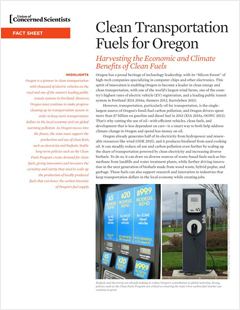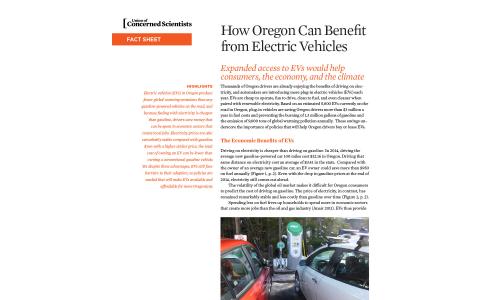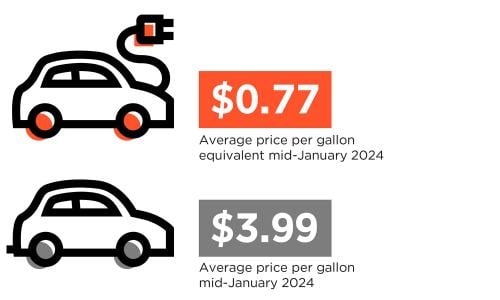Oregon has long been a clean vehicles leader. Portland boasts one of the country’s leading public transit systems, while state universities are pioneering new biomass-based biofuels. As thousands of electric vehicles charge off Oregon’s electricity grid—half of which comes from hydropower and renewable resources—Oregon’s transportation-related carbon footprint continues to shrink.
Yet despite this innovation, the transportation sector—and specifically, oil—still produces more than a third of Oregon’s fossil-fuel carbon pollution. These emissions are linked with real damages to Oregon’s residents and environment, mostly in the form of more frequent and severe heat waves, wildfires, and droughts. Oil is expensive too: Oregon drivers spent more than $7 billion on gasoline and diesel in 2013.
Addressing the environmental and economic costs of oil is a major goal of Oregon’s Clean Fuels Program, a flexible but ambitious program reauthorized in 2015 by the Oregon State Legislature. The program allows for all fuel types to compete based on their carbon benefits. In Oregon, biomass waste from urban, agricultural, and forestry sources could generate hundreds of millions of gallons of fuel every year, while electricity could cleanly and affordably power increasing numbers of new advanced vehicles.
Implementing the Clean Fuels Program is critical for meeting these goals and reducing the negative effects of Oregon’s oil use.






